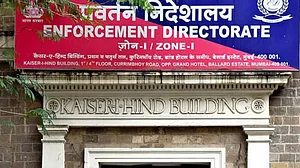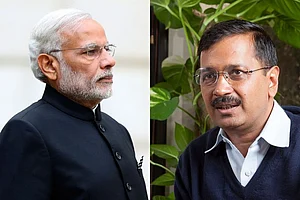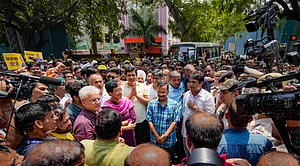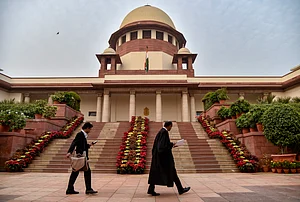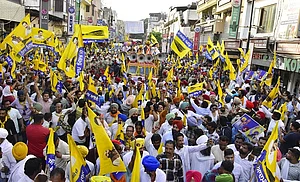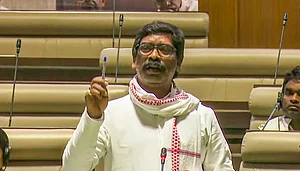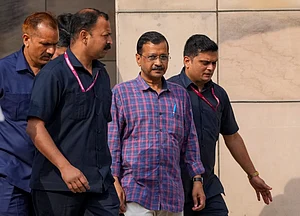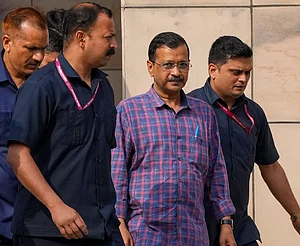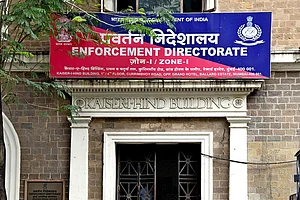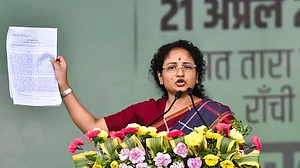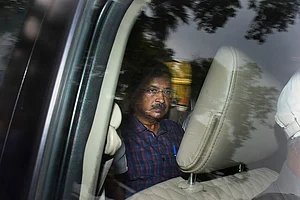
Name: The Enforcement Directorate (ED)
The Enforcement Directorate is India's government's crucial law enforcement and economic intelligence agency. It operates under the Department of Revenue, Ministry of Finance, with its headquarters in New Delhi. It plays a vital role in enforcing economic laws and combating financial crimes in the country.
The ED's primary mandate is to enforce two fundamental laws: the Prevention of Money Laundering Act, 2002 (PMLA) and the Foreign Exchange Management Act, 1999 (FEMA). Additionally, the agency is tasked with implementing the Fugitive Economic Offenders Act, 2018 (FEOA). The ED investigates cases of money laundering and violations of foreign exchange laws and works to attach and confiscate assets derived from criminal activities. Its mission is to ensure that the country's financial system remains free from illegal transactions and that economic crimes are effectively curtailed.
The ED was established as an "Enforcement Unit" within the Department of Economic Affairs, Government of India. Its primary function was to handle violations of exchange control laws under the Foreign Exchange Regulation Act of 1947 (FERA '47). The unit started with a modest setup, led by a Legal Service Officer and assisted by an officer from the Reserve Bank of India and three inspectors from the Special Police Establishment. It initially had two branches in Bombay (now Mumbai) and Calcutta (now Kolkata).
In 1957, the unit was renamed the "Enforcement Directorate," a new branch was opened in Madras (now Chennai). The administrative control of the Directorate was transferred from the Department of Economic Affairs to the Department of Revenue in 1960. The ED's mandate expanded over the years, with significant changes occurring during the economic liberalization in the 1990s. FERA 1973 was replaced by FEMA in 1999, and the ED was entrusted with enforcing this new law.
In 2002, the Prevention of Money Laundering Act (PMLA) was enacted, and the ED was responsible for enforcing it from July 1, 2005. More recently, the Fugitive Economic Offenders Act, 2018 (FEOA) was passed, and the ED was entrusted with its enforcement from April 21, 2018. These legislative changes have significantly strengthened the agency's ability to combat economic crimes.
The ED is headed by the Director of Enforcement, an Additional Secretary to the Government of India officer. The Director oversees the agency's operations and reports to the Department of Revenue, Ministry of Finance. The Director is supported by several Special Directors, Additional Directors, Joint Directors, Deputy Directors, Assistant Directors, and Enforcement Officers, ensuring efficient management and coordination across various regions and functions.
The ED's headquarters is in New Delhi, with five regional offices in Mumbai, Chennai, Chandigarh, Kolkata, and Delhi, each headed by a Special Director. These regional offices oversee the operations of zonal offices located in various cities across India, including Pune, Bengaluru, Kochi, Hyderabad, Jaipur, and many others. A Joint Director leads each zonal office. Additionally, the ED has sub-zonal offices in cities such as Mangaluru, Bhubaneshwar, Indore, Nagpur, and others, headed by Deputy Directors.
The ED's organizational structure includes specialized units such as the Headquarters Office, Coordination, Intelligence, System & Training, Adjudication, and the Special Task Force (STF), each managed by Joint Directors and Special Directors. This structure ensures that the agency can effectively tackle the multifaceted nature of economic crimes.
The Prevention of Money Laundering Act, 2002 (PMLA) provides for establishing Special Courts to ensure the speedy trial of offences under the Act. These Special Courts are established by the Central Government in consultation with the Chief Justice of the High Court and consist of a single judge appointed by the Central Government with the concurrence of the Chief Justice of the High Court. Special Courts have exclusive jurisdiction to try offences punishable under the PMLA and follow the procedure prescribed in the Code of Criminal Procedure, 1973 (CrPC), for trials before a Court of Session.
The ED has been subject to various judicial interventions to define and sometimes limit its powers. These interventions often arise from cases challenging the ED's actions under the PMLA and other related laws. For instance, in May 2024, the Supreme Court of India ruled that the ED cannot arrest an accused under Section 19 of the PMLA after a Special Court has taken cognizance of the complaint. The Supreme Court also clarified that the stringent conditions for bail under Section 45 of the PMLA do not apply if the accused appears before the Special Court in response to a summons. These judicial interventions aim to balance the ED's investigative powers with the rights of individuals, ensuring that the agency operates within the bounds of the law.
The ED has been instrumental in investigating and prosecuting high-profile cases of money laundering, foreign exchange violations, and economic crimes in India.
The ED has reported a high conviction rate in money laundering cases, though this figure is based on a small number of completed trials. As of January 31, 2023, the ED had registered 5,906 Enforcement Case Information Reports (ECIRs) and arrested 513 persons. However, only a tiny fraction of these cases have completed trial. In July 2023, data shared by the union government in Parliament revealed that only 31 cases under the PMLA had completed trial in the previous nine years, with 29 resulting in convictions, yielding a conviction rate of 93.54%.
The ED has faced accusations of being used as a political tool, particularly against opposition parties. Critics argue that the agency has been selectively targeting opposition leaders, conducting raids, and making arrests, especially during election periods. In March 2024, 14 opposition parties filed a petition with the Supreme Court alleging misuse of the ED.
The ED operates under several critical acts of Parliament, including:
Foreign Exchange Management Act, 1999 (FEMA)
Prevention of Money Laundering Act, 2002 (PMLA)
Fugitive Economic Offenders Act, 2018 (FEOA)
Conservation of Foreign Exchange and Prevention of Smuggling Activities Act, 1974 (COFEPOSA)
The Enforcement Directorate (ED) is pivotal in India's fight against economic crimes. With its extensive mandate and robust organizational structure, the ED plays a critical role in enforcing economic laws, investigating financial crimes, and ensuring the country's financial system remains secure and free from illegal activities. Despite facing challenges and criticisms, the ED continues to be an essential pillar in India's law enforcement framework.


